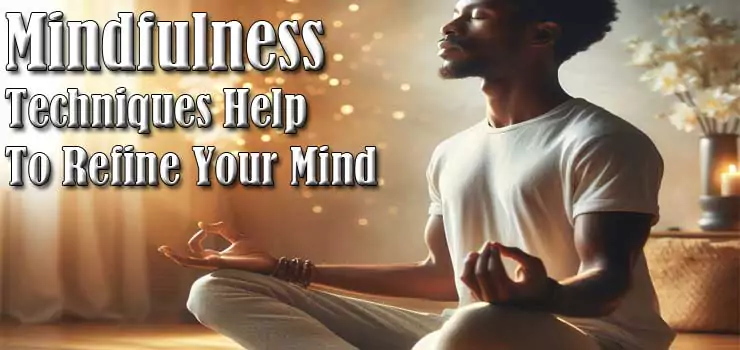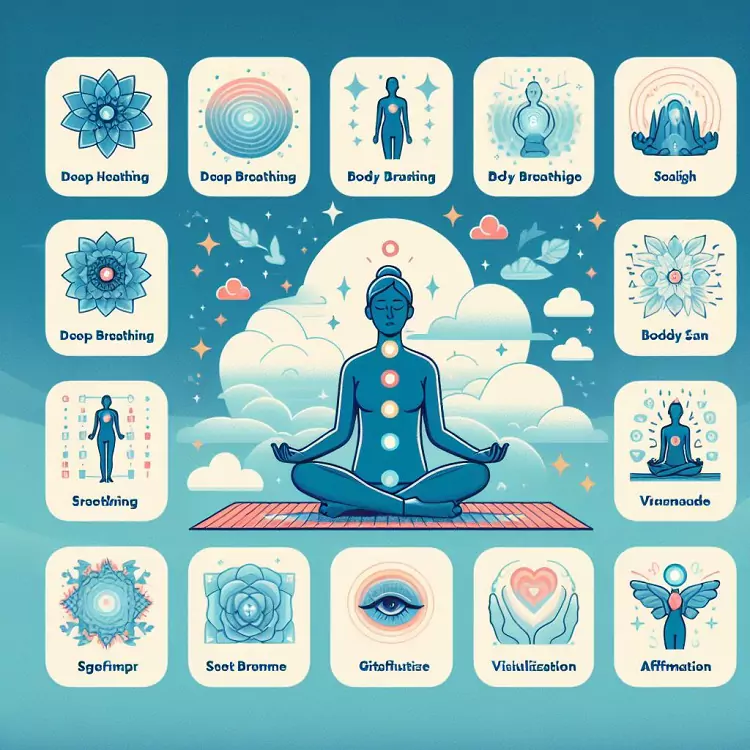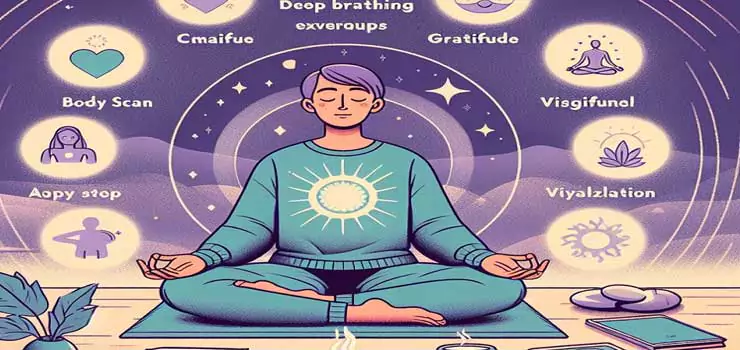Table of Contents
Life can be a whirlwind, and sometimes it feels like we’re just trying to keep up. In the midst of the chaos, finding moments of calm and focus is crucial for our mental wellbeing. That’s where mindfulness comes in. In this article, we’ll explore practical techniques to incorporate mindfulness into your daily life, helping you navigate stress and cultivate a healthier mind.
Introduction
In a fast-paced world, where every second counts, finding moments of peace can seem like a distant dream. But what if I told you that tranquility is within reach? Let’s delve into the world of mindfulness—a practice that promises better mental wellbeing in the midst of our bustling lives.

What is Mindfulness?
Mindfulness is like a mental gym workout. It involves being present in the current moment without judgment. Picture it as a spotlight illuminating the present, cutting through the noise of past regrets and future worries.
The Power of Breath
Breathe in, breathe out—more than just a reflex. Discover how the simple act of mindful breathing can be your anchor in turbulent times, calming the storm within and bringing focus to the present.
Grounding Techniques
Root yourself in the now. Explore practical grounding techniques that connect you with your surroundings, providing stability and reducing anxiety. It’s like planting roots to weather the storms of life.
Mindful Eating
Savor the flavor of every bite. Mindful eating isn’t just about what’s on your plate; it’s about nourishing your body and soul. Learn how to turn your meals into a mindful experience.
Digital Detox: Unplug for Mental Clarity
Hit pause on the digital chaos. Step away from screens and embrace a digital detox. Discover how this practice not only benefits your eyes but also clears the mental fog, promoting clarity and focus.
Nature’s Influence on Mindfulness
Nature’s symphony of serenity. Explore how connecting with nature can be a powerful mindfulness tool. Whether it’s a stroll in the park or a hike in the mountains, nature has a way of grounding us in the present.

Mindful Movement: Exercise for the Mind
Exercise isn’t just for the body. Dive into the world of mindful movement—activities that engage both body and mind. Discover how yoga, tai chi, or a simple walk can elevate your mental fitness.
Integrating Mindfulness into Daily Tasks
Turn chores into mindful moments. Learn how to infuse mindfulness into your daily routine, transforming mundane tasks into opportunities for mental clarity and peace.
Cultivating Gratitude
Harvest joy from gratitude. Explore the transformative power of gratitude in cultivating a positive mindset. Discover simple practices that shift your focus from what’s lacking to the abundance that surrounds you.
Mindfulness in Relationships
Connect on a deeper level. Uncover how mindfulness can enhance your relationships. From active listening to being fully present, mindfulness can strengthen the bonds that matter most.
Overcoming Common Mindfulness Challenges
Navigating the bumps in the mindful road. Address common challenges in maintaining a mindfulness practice. Learn practical tips to overcome hurdles and make mindfulness a sustainable part of your life.
The Science Behind Mindfulness
More than just a trend—a scientific reality. Delve into the research behind mindfulness and understand how it positively impacts brain function, stress levels, and overall mental health.

Conclusion
In a world that often feels like a constant race, mindfulness offers a sanctuary of calm. By integrating these techniques into your daily life, you can unlock a reservoir of tranquility, fostering better mental wellbeing.
Also Read: Simple Sustainable Living: Reduce Your Impact with Eco-Friendly Choices
FAQs for Further Clarity
Q1: Can anyone practice mindfulness?
Absolutely! Mindfulness is for everyone, regardless of age or background. It’s a universal tool for enhancing mental wellbeing.
Q2: How long does it take to see the benefits of mindfulness?
Results vary, but with consistent practice, many people report feeling positive changes within a few weeks.
Q3: Can mindfulness replace therapy for mental health issues?
While it complements therapy, mindfulness isn’t a substitute. Consult a mental health professional for personalized guidance.
Q4: Is mindfulness a religious practice?
No, mindfulness is a secular practice rooted in ancient traditions. It can be adapted to suit individuals from any cultural or religious background.
Q5: Can mindfulness be practiced in a busy schedule?
Absolutely. Even short moments of mindfulness amid a busy schedule can make a significant impact on your mental wellbeing.




